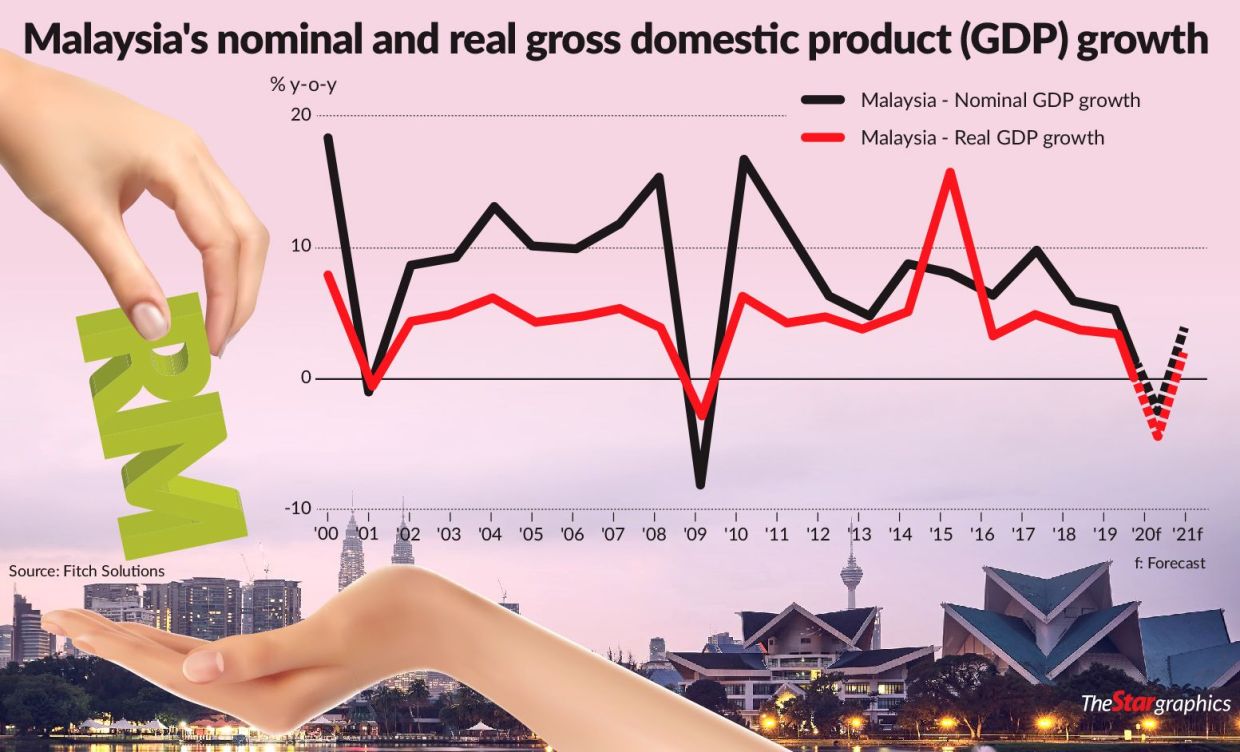Tough for Malaysia to escape middle-income trap
PETALING JAYA: Malaysia’s aspiration to enter the league of high-income nations may have become tougher to achieve, owing to the country’s political uncertainty, an ageing population and the government’s diminishing ability to spend.
According to Fitch Solution, the middle-income trap looms large for Malaysia over the next 10 years as average growth is forecast to slow down sharply.
“We forecast an average growth rate of 3.4% (dragged by the likely contraction in 2020 due to the Covid-19 pandemic) over the next decade, compared to an average of 6.4% over the past decade, ” it said in a note.
Fitch Solution attributed the slower growth to extended political uncertainty during Malaysia’s transition away from one-party rule leading to “stalling, even backsliding, reform momentum”.
In addition, it also said that the less favourable demographics and the reduced fiscal space to cushion the economy in times of crisis further weigh on long-term prospects.
“Having exhausted avenues of growth provided by lower-level industrialisation, Malaysia has to upgrade its economy in order to escape the middle-income trap, ” said Fitch Solution.
The research firm pointed out that the country’s political uncertainty in the interim would likely be received negatively by investors.
This would even cause Malaysia to start on the back foot against regional competitors, especially Vietnam, in the race to attract foreign direct investment.
“This is inopportune, given that businesses and countries around the world are accelerating plans to move at least part of their operations out of China in a bid to build more diversified and resilient supply chains, as an answer to the liabilities of relying too much on China exposed by the US-China trade war that began in 2018 and the Covid-19 pandemic in 2020, ” it said.
It is noteworthy that on Sept 23, Datuk Seri Anwar Ibrahim announced that the current Perikatan Nasional government is set to be toppled as he had secured the majority support from MPs to form the next government. However, he stopped short of revealing the numbers.
An economist told StarBiz that the rife political uncertainty did have a significant impact on investor sentiment, particularly among foreign investors, as well as the economic growth.
“However, it should be noted that while Malaysia has seen the federal government change twice in the past two years, the policy direction remains largely similar.
“This is the most important factor. While the implementation may differ, the policy direction should not change significantly. A stable and visionary policy direction will help to retain investor sentiment even if governments change, ” he said in response to Fitch Solution’s view that political uncertainty may drag down economic growth.
Meanwhile, Socio-Economic Research Centre executive director Lee Heng Guie said that macroeconomic and political stability are essential to ensure a sustainable economic expansion path.
“Policy continuity and meaningful reforms, whether a gradual approach or Big Bang, should take priority to shore up confidence and economic sustainability.
“Good sense and strong political will must prevail to reset our national development agenda based on needs, irrespective of race, while priority must be given to protect the most vulnerable groups.
“Attempts at reforming are often stymied by the ubiquitous ‘vested interests’. If it is the case that only a crisis will stimulate reform, then now would be the time to expect something different and for those vested interests to be faced down, ” he said.
In order to accelerate Malaysia’s growth, Lee opined that the government must look at opportunities that capitalise on the country’s strengths and comparative advantages.
“There are ongoing challenges and issues as well as new dimensions (due to the Covid-19) that require the policymakers to make bold reforms and implement quick actions to ensure a sustainable and inclusive economic expansion targeting at an average growth of 4% to 5% per annum over the medium term, ” he said.
Source: https://www.thestar.com.my/business/business-news/2020/10/01/tough-for-malaysia-to-escape-middle-income-trap


 English
English




